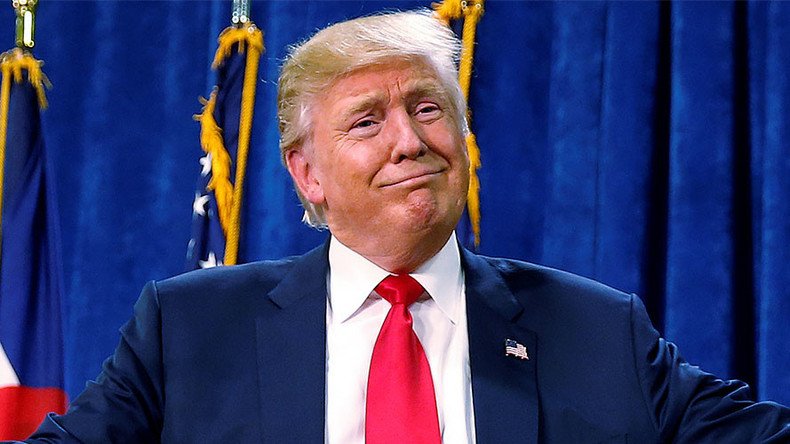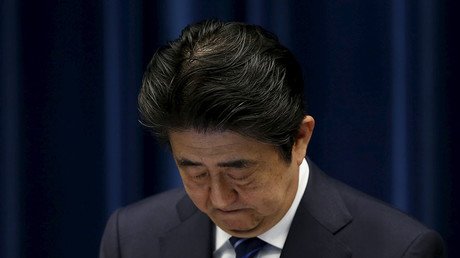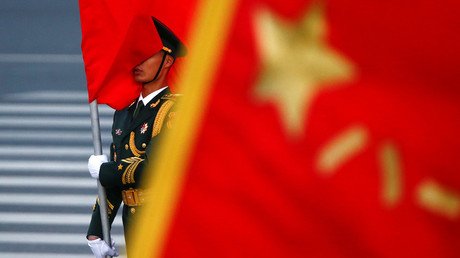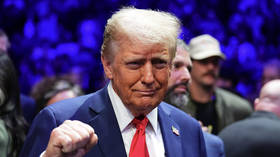Trump says Trans-Pacific Partnership is dead – but will he backpedal?

President-elect Donald Trump has recently caught flak from supporters for distancing himself from his most contentious campaign promises, but he has stayed committed to pulling the plug on the TPP.
In the two weeks since Donald Trump’s surprise election victory, the billionaire developer has adopted a noticeably softer demeanor from that of his insurgent campaign personality.
While vetting a team of mostly right-wing Republicans for his incoming transition team, he has cautiously walked back from several contentious campaign talking points while attempting to shed the most controversial elements of his base.
Trump has publicly disavowed prominent white-nationalist organizations and is making concessions on his most divisive goals. Areas of his odious border wall with Mexico may be dialed back to simple fencing, while some aspects of Obamacare might not be totally repealed. He has decided against appointing a special prosecutor to investigate Hilliary Clinton and has signaled a slightly more malleable position on climate protection.
It’s clear that after campaigning against the Republican party establishment, President-elect Trump is now focused on building cohesion with the party elite and offering some of his vocal critics an olive branch in the form of a position in his administration.
It should be remembered that was this same pro-business Republican establishment that forged an atypical alliance between President Obama in support of the Trans-Pacific Partnership, the largest corporate trade agreement in history, which Trump has reaffirmed his desire to withdraw from on the first day in office.
There are a few silver linings in Trump’s victory, and the death of the TPP is certainly one of them. Oft touted as the centerpiece of the Obama administration’s re-engagement with Asia, the TPP is a multilateral trade and investment agreement involving twelve key Pacific Rim nations – with the glaring exclusion of China, the region’s largest economy and the largest trading partner of Asia-Pacific countries.
The trade pact has been bitterly opposed in participating countries by activists of all stripes - from worker’s rights and environmental groups to Internet freedom advocates and consumer associations - for abjectly favoring private corporate interests at the vast expense of public health and welfare.
Not to mention the deal’s stark geopolitical connotations, as evidenced by Obama’s remark that “we can’t let countries like China write the rules of the global economy, we should write those rules,” and the incendiary quip of his defense secretary Ash Carter, who claimed the “TPP is as important to me as another aircraft carrier."
After eight years of Kafkaesque closed-door negotiations from which the global public has been diligently kept out, it was clear the trade agreement wouldn’t have the votes to be ratified during the current lame-duck session of Congress, forcing Obama to quietly abandon his pursuit of the deeply troubling deal that both Donald Trump and Bernie Sanders lambasted on the campaign trail.
Since reaffirming his intention to withdraw from the TPP in favor of negotiating fresh bilateral deals, several US allies in Asia have reacted with dismay and resignation. Vietnam has strategically backed away from the deal, publicly opting to pursue an independent foreign policy.
Japanese PM Shinzo Abe was the first foreign leader to meet with Trump, ostensibly to assess shifting US trade policy and future relations with Washington. It is almost certain that Abe expressed hope that Trump would reconsider the TPP given the Japanese leader’s fierce lobbying of the deal.
Singapore, being a capital-rich and trade-reliant city-state, has been the most vocal proponent of the deal as PM Lee Hsien Loong repeatedly warned that a failure to ratify would diminish Washington’s standing among Asian trade partners and leave the 'Asia pivot' in doubt.
His remarks are clearly directed toward the US deep state that has prioritized Washington’s strategic realignment toward the Asia-Pacific. Lee has vowed to press ahead with the agreement independently of what Washington decides, though Shinzo Abe’s recent statement that the deal would be “meaningless without the United States” certainly leaves Singapore’s leader with egg on his face as Beijing looks on.
The big questions remain: What kind of trade policies will the incoming Trump administration pursue? Will the TPP be abandoned or potentially renegotiated without the United States? How will China position its trade policy with the TPP in retreat? Will President Trump reverse course and pursue the deal?
It's clear that Trump will face sustained resistance from Republican senators, lobbyists for the US Chamber of Commerce and the deal’s prominent supporters in Washington who are portraying the decision to withdraw as a strategic capitulation to China, which is pursuing its own regional trade accord, the Regional Comprehensive Economic Partnership (RCEP), which excludes the United States.
Trump, who can be relied on to boast of his prowess for cutting deals, believes he can obtain greater leverage over trade deals by negotiating bilaterally with US partners. Whether these deals involve incentives to boost foreign investment in US infrastructure and domestic energy production or the provocative leveling of tariffs against competitors is anyone’s guess.
One of the key reasons the TPP negotiations dragged on for eight years is due to the US Trade Representative’s aggressive imposition of corporate interests on all countries involved.
The most egregious proposal is the Investor-State Dispute Settlement mechanism that allows for corporations to challenge government regulations that disadvantage their business interests in an international arbitration panel staffed by corporate lawyers whose rulings cannot be appealed.
Then there’s the extension of patent and copyright protections that would have greatly driven up the costs of pharmaceuticals in participating countries. The upward redistribution of income is the raison d'etre of the TPP, which emboldens corporate monopolies and actually distorts the free market to the benefit of transnational corporate class interests.
If Trump attempts to negotiate bilateral deals that even more aggressively favors US corporate interests, he will hit a figurative wall as he builds his literal wall. Opposition to the TPP is not grounded in populism or anti-globalization, but about rejecting a model of globalization imposed on the globe by the Democratic and Republican party establishments.
Rather than engage in a trade war with China or ridiculously labeling it a ‘currency manipulator’ (as if the US hasn’t been running QE since 2008), Trump should negotiate preferential terms for direct foreign investment in the US economy to rebuild its crumbling infrastructure. The TPP will either be resuscitated or replaced with something else, for better or for worse, but probably the latter.
The statements, views and opinions expressed in this column are solely those of the author and do not necessarily represent those of RT.















